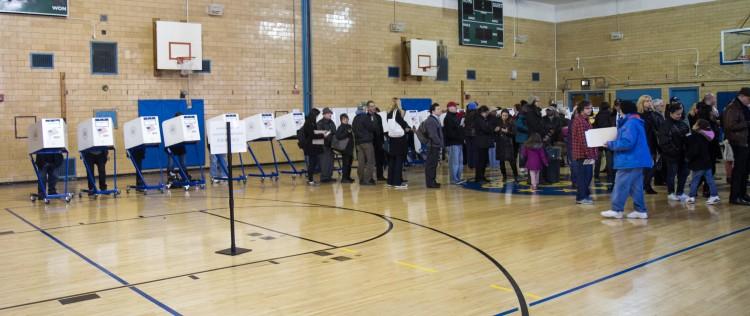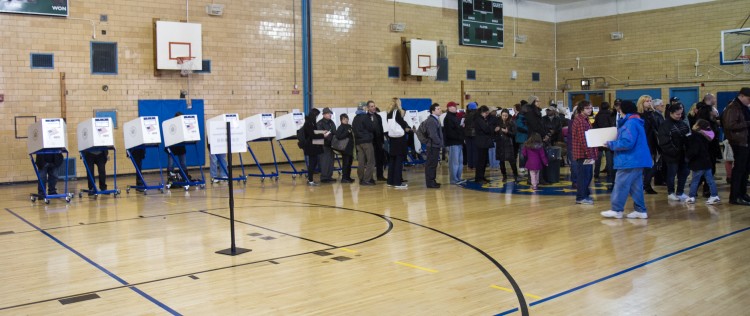NEW YORK—For the sixth time since 2010, the New York City Board of Elections (BOE) was called before the New York City Council to hear recommendations for improving on elections logistics with an aim to boosting voting rates.
The marathon hearing—over six hours—was much more subdued than past hearings, due in large part to a format change: groups that promote good government testified first, the BOE last. Plenty of suggestions were made to improve all aspects of the election process, including the human element—the election poll workers.
Improvements in the selection of workers, the training process, and working methods were discussed as a fundamental way to shorten long lines, which was the chief complaint from the 2012 presidential election.
“Poll workers are the lynch pin of an effective election,” said Alex Camarda, director of public policy at Citizens Union, a nonpartisan good government advocacy group. “Unless we change the manner in which we recruit workers, we will never get 35,000 people to work and reach that level of quality (we want),” Camarda said.
Election poll workers are temporary workers, hired for one-day assignments. They are paid $200 or $300, depending on the job, and are required to work a 16–18 hour shift, often without breaks.
“There is simply no other enterprise that needs to approve tens of thousands of people to do a particular task that would limit itself to people who are available for 16-hour shifts,” said New York state Assemblyman Brian Kavanagh.
Filling the 30,000–35,000 positions needed has proven increasingly difficult each year. District leaders are supposed to be helping recruit poll workers, however, that has not been happening, leaving the bulk of the job to the BOE.
With over 400 slots to fill in the 52nd Assembly District of Brooklyn, District Leader Jo Anne Simon said filling those positions has become complicated, especially with the harsh requirements of the job.
“There are people who will not come back again,” Simon said following the hearing. “They start at 5 in the morning and end at 10 at night. They didn’t get breaks. Who works that long?”
Multiple people suggested half-day shifts, however the BOE, while not opposed to the idea, believes it will be a challenge to implement.
“We have to recruit the qualified poll workers we need in order to implement the half shifts,” Dawn Sandow, deputy executive director of the BOE said during the hearing. “This doubles the cost of training to approximately $5 million in a two-event election year.”
In order to avoid the increased cost in training, as well as dramatically boost the quality of poll workers, the New York Democratic Lawyers Council (NYDLC) offered a unique solution—hire them.
The NYDLC recruited, trained, and employed over 1,000 attorneys to observe the November elections, and Alex Voetsch believes many could collect a pro-bono credit to work as poll workers.
“Attorneys, who are highly educated, and bound by a professional code of ethics are an untapped resource that could revolutionize the pool of poll workers in New York City,” said Voetsch, Executive Director of New York Democratic Lawyers Council (NYDLC).
Funding Needed
Many ideas were discussed and the BOE said they would explore all of them—however many of the options would require more funding, including additional staffing needs. The BOE has asked City Council for funding for 104 additional workers, but has not received it.
“The issue of funding to the City Board is a fair point,” said City Council Speaker Christine Quinn. The speaker said she did not take criticism of not releasing funds lightly. “I want to be clear from my perspective that there has to be a much greater structural change and clarity in how (BOE) management would change in a way to make sure those monies are spent well.”
Pamela Perkins, administrative manager at the BOE, later testified that there are consequences to doing more with less. “Because of this new voting system it is just not practical or possible for us to move forward facing the kinds of elections that are going to be coming up in 2013 and in the future with doing more with less.”







